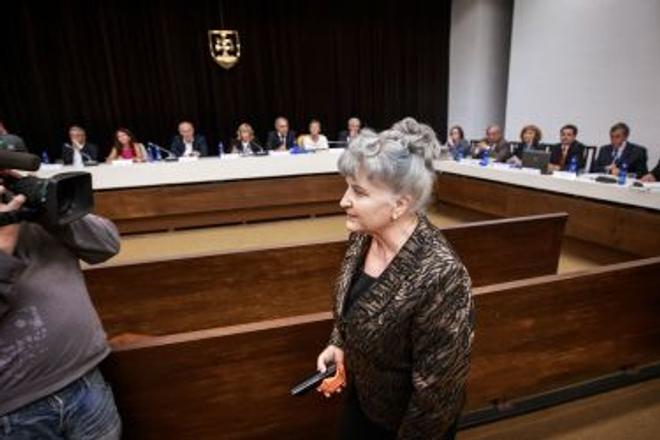The single most significant change within the country’s judiciary over the past year is the failure of Štefan Harabin to get re-elected as the Supreme Court’s top chair. Supreme Court Judge Daniela Švecová replaced Harabin at the Supreme Court while another Supreme Court Judge Jana Bajánková, who failed in the first-round bid for Supreme Court head, now leads the Judicial Council.
Previously both these posts were held by Harabin, but a constitutional amendment passed earlier in 2014 divided the post of Supreme Court president from the position of Judicial Council boss as of September. The changes are seen as better conditions for the eventual reform of the judiciary as it was under Harabin.
Though Harabin made one last attempt to get back to the Judicial Council, judges selected pro-reform judge Dušan Čimo over Harabin to fill the last vacant seat on the council.
Čimo was a former Judicial Council member who was dismissed by the Smer-controlled parliament only one week before the key September 16 election of the Supreme Court president and the council chair.
In 2014, the Constitutional Court also brought a landmark ruling to the case of lawfully elected but never appointed general prosecutor Jozef Čentéš when it said that Gašparovič violated Čentéš’s basic rights when he refused to appoint him. The court has also cancelled the late 2012 decision of Gašparovič. This was the first time in the history of Slovakia that the Constitutional Court found the president violated a person’s rights, Čentéš said.
Nevertheless, the ruling is unlikely to induce any change to one of the country’s most powerful post, which is currently occupied by Jaromír Čižnár.
Fico also said that though he respects the court’s decision, he does not see a way to backtrack.
Slovakia has had an unfortunate hand in picking candidates for the post of judge of the European Court of Human Rights (ECHR), the Council of Europe after the tenure of previous Slovak judge at the ECHR, Ján Šikuta, expired on October 31, 2013. None of the candidates Slovakia tabled have satisfied the requirements for an ECHR judge. Slovakia has submitted lists of candidates to the Parliamentary Assembly of the Council of Europe twice, but the candidates have been rejected due to insufficient qualifications and lack of experience.
Related article
Kiska’s election changes landscape
Scandals
Centre-right continues crumbling
Media ownership raises concerns
Referendum sparks rights discussions





 Supreme Court president Daniela Švecová (source: SME)
Supreme Court president Daniela Švecová (source: SME)